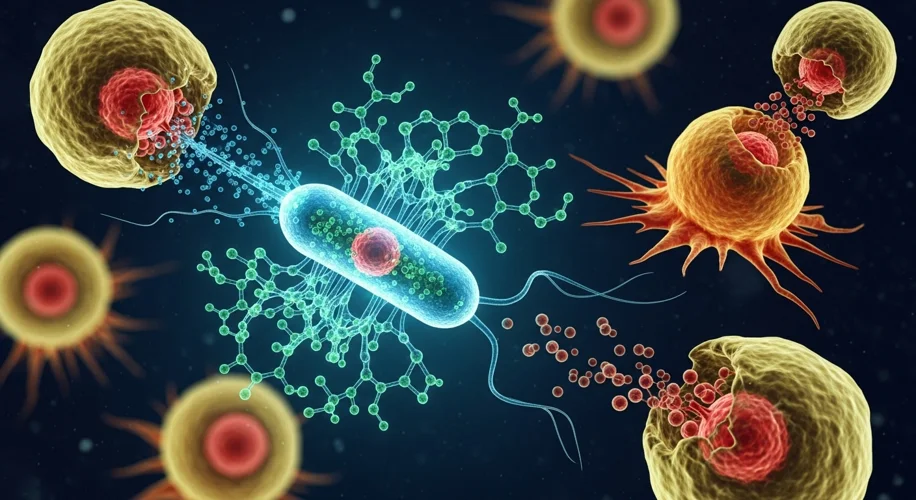It’s incredible how much we’re still discovering about the natural world, and sometimes, the most exciting breakthroughs come from the least expected places. Today, I want to share some fascinating research that bridges marine biology and cancer therapeutics – a discovery involving a special molecule produced by tiny marine bacteria.
Scientists have identified a novel exopolysaccharide, a type of complex sugar molecule, that’s highly prevalent in a marine bacterium called Spongiibacter. This isn’t just any sugar; this particular exopolysaccharide has shown a remarkable ability to trigger a specific cell death process known as pyroptosis. And why is that significant? Because pyroptosis is a highly inflammatory form of programmed cell death, and scientists are exploring it as a powerful new strategy in cancer treatment.
Pyroptosis is distinct from other forms of cell death. When a cell undergoes pyroptosis, it essentially explodes, releasing its contents. This process is thought to be particularly effective against cancer cells because it not only eliminates the cancerous cell itself but also elicits an immune response. The release of inflammatory signals can alert and activate other immune cells to hunt down and destroy remaining cancer cells, creating a double-pronged attack.
The marine bacterium Spongiibacter, often found living symbiotically with marine sponges, produces this potent exopolysaccharide. Marine sponges themselves are known to be a rich source of bioactive compounds, likely developed as a defense mechanism against predators or pathogens in their environment. This discovery highlights how exploring microbial communities associated with marine life can lead to entirely new avenues of scientific inquiry.
What makes this particular exopolysaccharide so promising is its specific action. Researchers found that it can selectively induce pyroptosis in cancer cells while largely sparing healthy cells. This selectivity is crucial for developing effective cancer therapies, as minimizing damage to healthy tissues is a primary goal.
The implications of this finding are substantial. If this exopolysaccharide or compounds derived from it can be safely and effectively developed, they could offer a new therapeutic option for various types of cancer. It’s a testament to the vast, untapped potential of marine biodiversity.
As a scientist focused on understanding complex systems, I find this research particularly compelling. It showcases how studying even the smallest organisms, like bacteria living on sponges, can yield discoveries with profound impacts on human health. It’s a beautiful example of nature’s intricate solutions and the power of interdisciplinary scientific exploration.
This kind of research reminds us why protecting our oceans and the life within them is so important. We never know what vital discoveries are waiting to be made in these unexplored frontiers.

